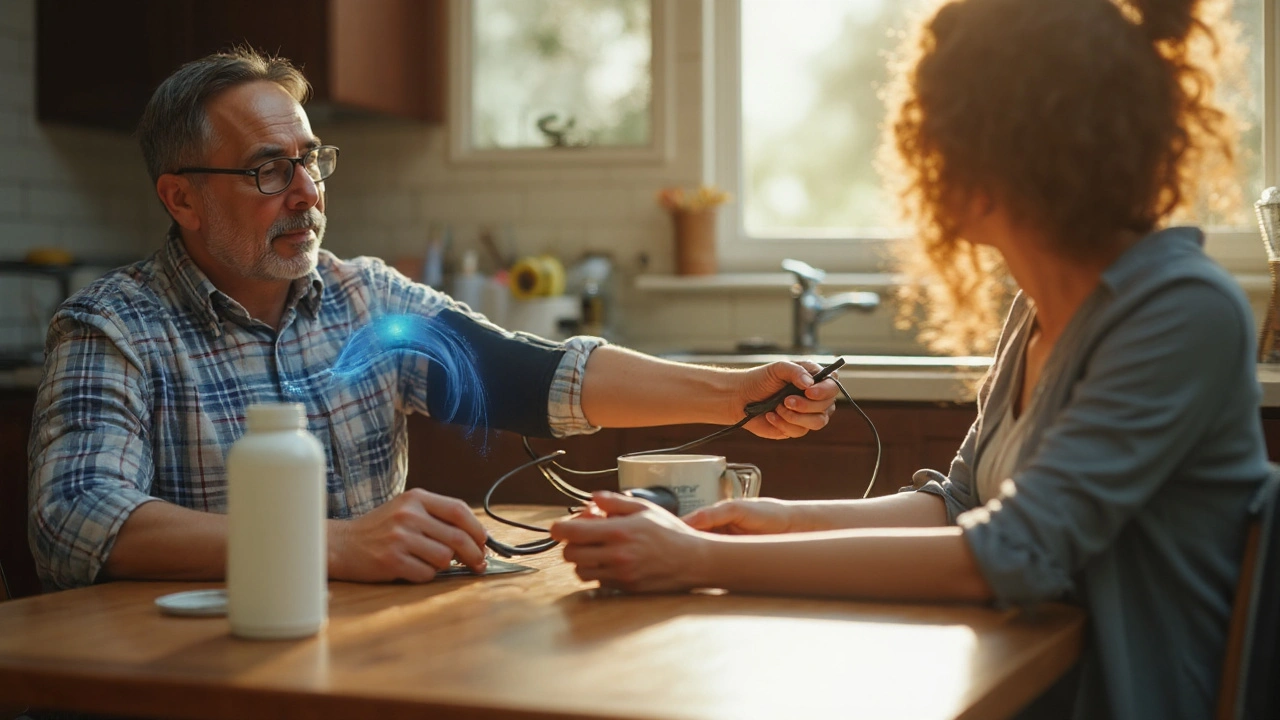Ever wonder why athletes talk about “nitric oxide boosters” or why doctors mention nitric oxide when discussing heart health? In simple terms, nitric oxide (NO) is a tiny gas molecule that your cells use to send signals. Its biggest job is relaxing the muscles around blood vessels so they widen – a process called vasodilation. When vessels open up, blood flows easier, delivering oxygen and nutrients where you need them.
Your body produces NO mainly from an amino acid called L‑arginine. An enzyme called nitric oxide synthase (NOS) attaches oxygen to L‑arginine and releases NO into the bloodstream. Foods rich in nitrates – like beetroot, spinach, and arugula – also help because your gut bacteria turn those nitrates into nitrites, which then become NO.
Because NO is short‑lived, your body constantly makes it to keep blood pressure steady and support muscle function. When production drops, you might notice slower recovery after workouts, lower stamina, or even higher blood pressure.
If you want a quick NO boost, most people turn to supplements that contain L‑arginine or its cousin L‑citrulline. L‑citrulline is often preferred because it converts to L‑arginine inside the body and tends to raise NO levels more steadily.
Typical dosing looks like this: 3–6 grams of L‑citrulline taken about an hour before exercise, or 2–5 grams of L‑arginine split into two doses throughout the day. Start low, see how you feel, then adjust if needed.
Aside from pills, you can eat nitrate‑rich veggies daily. A cup of beet juice or a handful of leafy greens can give a natural NO lift without any pill count.
Safety matters. Most people tolerate these supplements well, but high doses of L‑arginine might cause stomach upset or interact with certain blood pressure meds. If you’re on medication for heart disease, hypertension, or erectile dysfunction, check with your doctor before adding a booster.
Remember that NO isn’t a miracle cure. It supports better circulation, which can improve workout performance, recovery, and even sexual health, but it won’t replace proper diet, exercise, or medical treatment when needed.
Bottom line: Nitric oxide helps your blood flow smoother, fuels muscles, and keeps the heart happy. You can raise its levels naturally with foods or safely with modest supplement doses. Keep an eye on how you feel, stay within recommended amounts, and talk to a healthcare professional if you have any existing conditions.

Clear, evidence-backed guide to L-Arginine: how it works, what it helps (BP, ED), safe doses, food sources, risks, and smarter alternatives like citrulline.